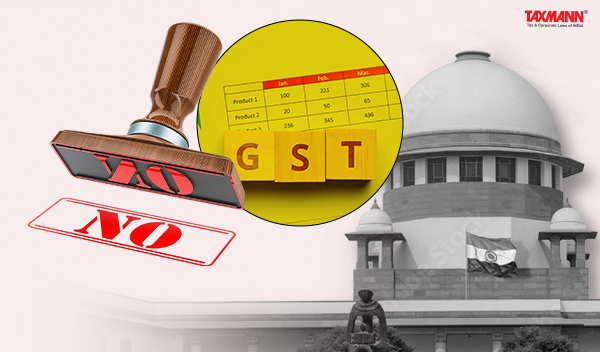DGGI Has No Power to Transfer Case Pending Before State GST Authority to Itself | HC
- Blog|News|GST & Customs|
- 2 Min Read
- By Taxmann
- |
- Last Updated on 8 October, 2024

Case Details: Stalwart Alloys India Private Limited v. Union of India - [2024] 167 taxmann.com 93 (Punjab & Haryana)
Judiciary and Counsel Details
- Sanjeev Prakash Sharma & Sanjay Vashisth, JJ.
- Sandeep Goyal, Adv. for the Petitioner.
- R. Venkataraman, Assistant Solicitor General of India, Sourabh Goel, Sr. Standing Counsel, Ms Shivani Sahni, Ms Geetika Sharma, Ms Anju Bansal, Advs. & Ms Tanisha Peshawaria, Deputy Adv. General, for the Respondent.
Facts of the Case
The petitioner was a manufacturer of Lead alloys, Lead pure in shape of ingots, lead sub-oxide and red lead in power form and an enquiry was initiated by the State Tax Department with regard to wrongful availment of Input Tax Credit (ITC) against the petitioner. The DGGI, Headquarters had accorded permission to office of DGGI, Meerut Zonal Unit to conduct centralized investigation against petitioner for period after 2019 and State Tax Officer transferred proceedings. The petitioner filed writ petition against the transfer of proceedings to DGGI and contended that the action was in violation of provisions of Section 6(2)(b) of the Central Goods and Services Tax Act, 2017.
High Court Held
The Honorable High Court noted that the State and Central Government have same powers under CGST and if one of officers has already initiated proceedings, the same could not be transferred to another. In the instant case, the State authorities initiated proceedings for the period from 01.07.2017 to 22.07.2019 alone. However, the DGGI passed order to conduct investigation for period from July 2019 to March 2022.
But the word ‘subject matter’ used in Section 6 means ‘nature of proceedings’ and in present case, it meant proceedings initiated for wrongful availment of ITC by fraudulent means. Thus, if state had already initiated proceedings by issuing notice under Section 74 for same subject matter, DGGI could not be allowed to initiate from 28.07.2019 to 20.01.2022. Therefore, the Court held that the action of transferring proceedings to DGGI was not sustainable in law and liable to be set aside.
Disclaimer: The content/information published on the website is only for general information of the user and shall not be construed as legal advice. While the Taxmann has exercised reasonable efforts to ensure the veracity of information/content published, Taxmann shall be under no liability in any manner whatsoever for incorrect information, if any.

Taxmann Publications has a dedicated in-house Research & Editorial Team. This team consists of a team of Chartered Accountants, Company Secretaries, and Lawyers. This team works under the guidance and supervision of editor-in-chief Mr Rakesh Bhargava.
The Research and Editorial Team is responsible for developing reliable and accurate content for the readers. The team follows the six-sigma approach to achieve the benchmark of zero error in its publications and research platforms. The team ensures that the following publication guidelines are thoroughly followed while developing the content:
- The statutory material is obtained only from the authorized and reliable sources
- All the latest developments in the judicial and legislative fields are covered
- Prepare the analytical write-ups on current, controversial, and important issues to help the readers to understand the concept and its implications
- Every content published by Taxmann is complete, accurate and lucid
- All evidence-based statements are supported with proper reference to Section, Circular No., Notification No. or citations
- The golden rules of grammar, style and consistency are thoroughly followed
- Font and size that’s easy to read and remain consistent across all imprint and digital publications are applied



 CA | CS | CMA
CA | CS | CMA
